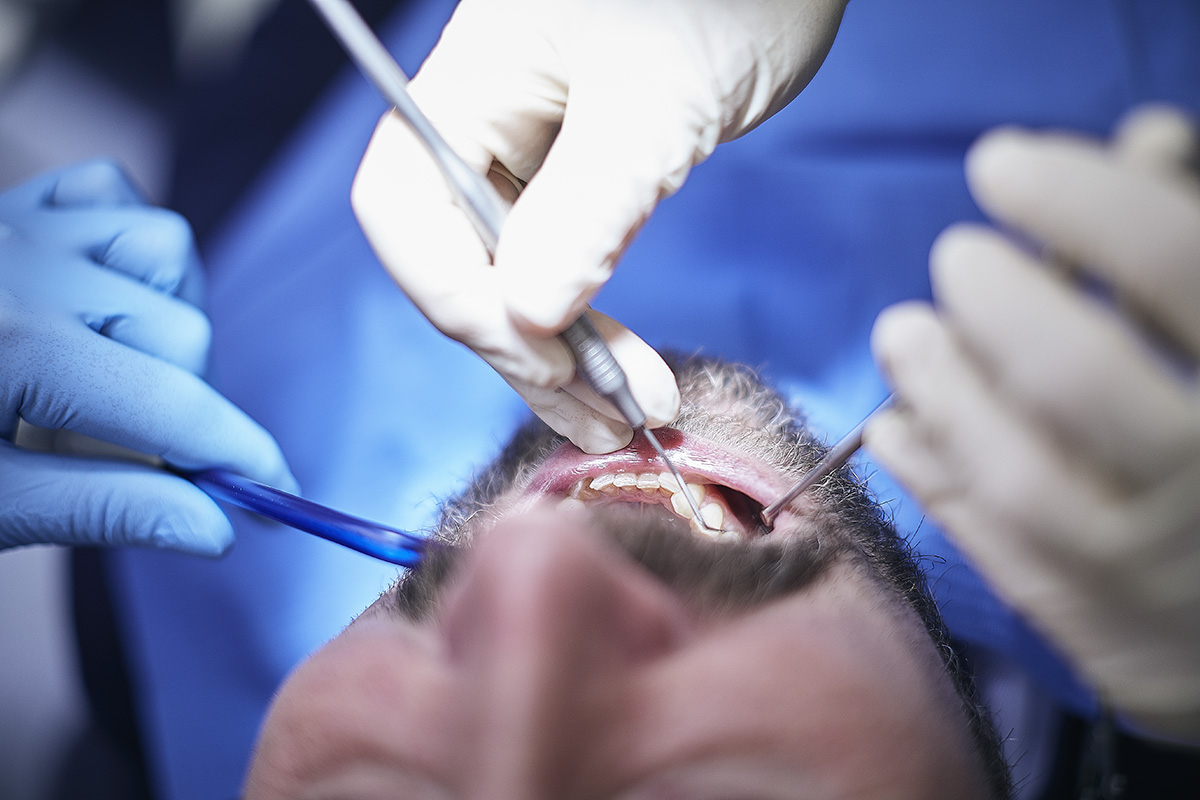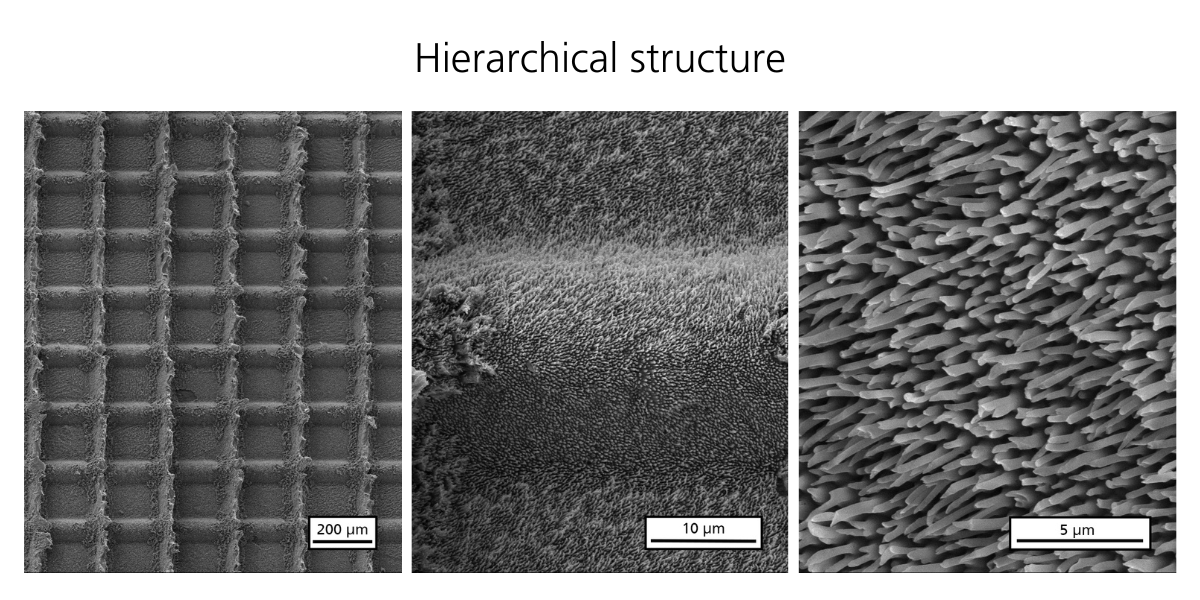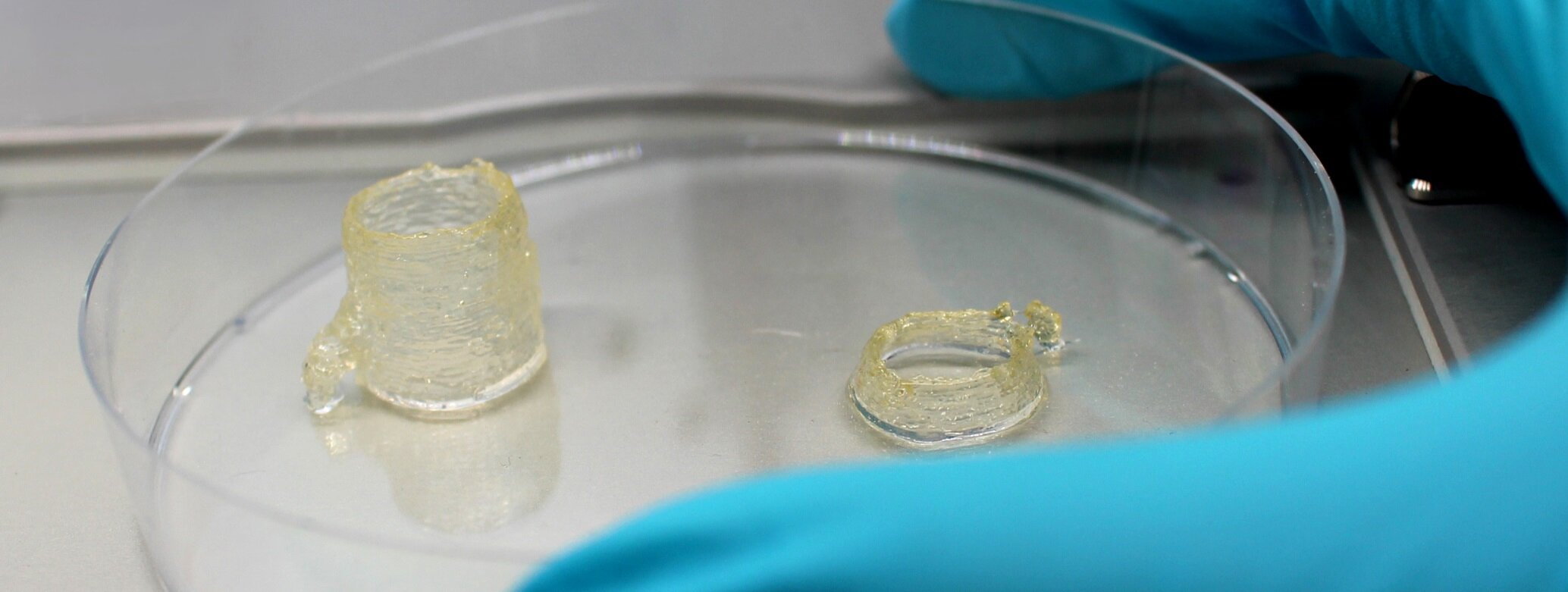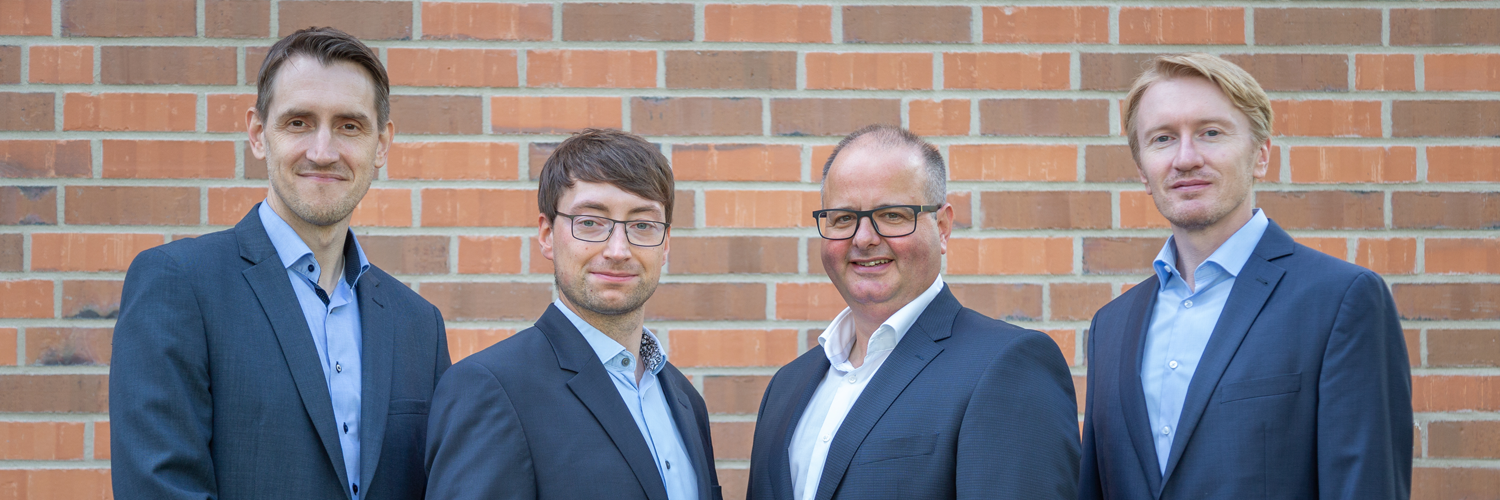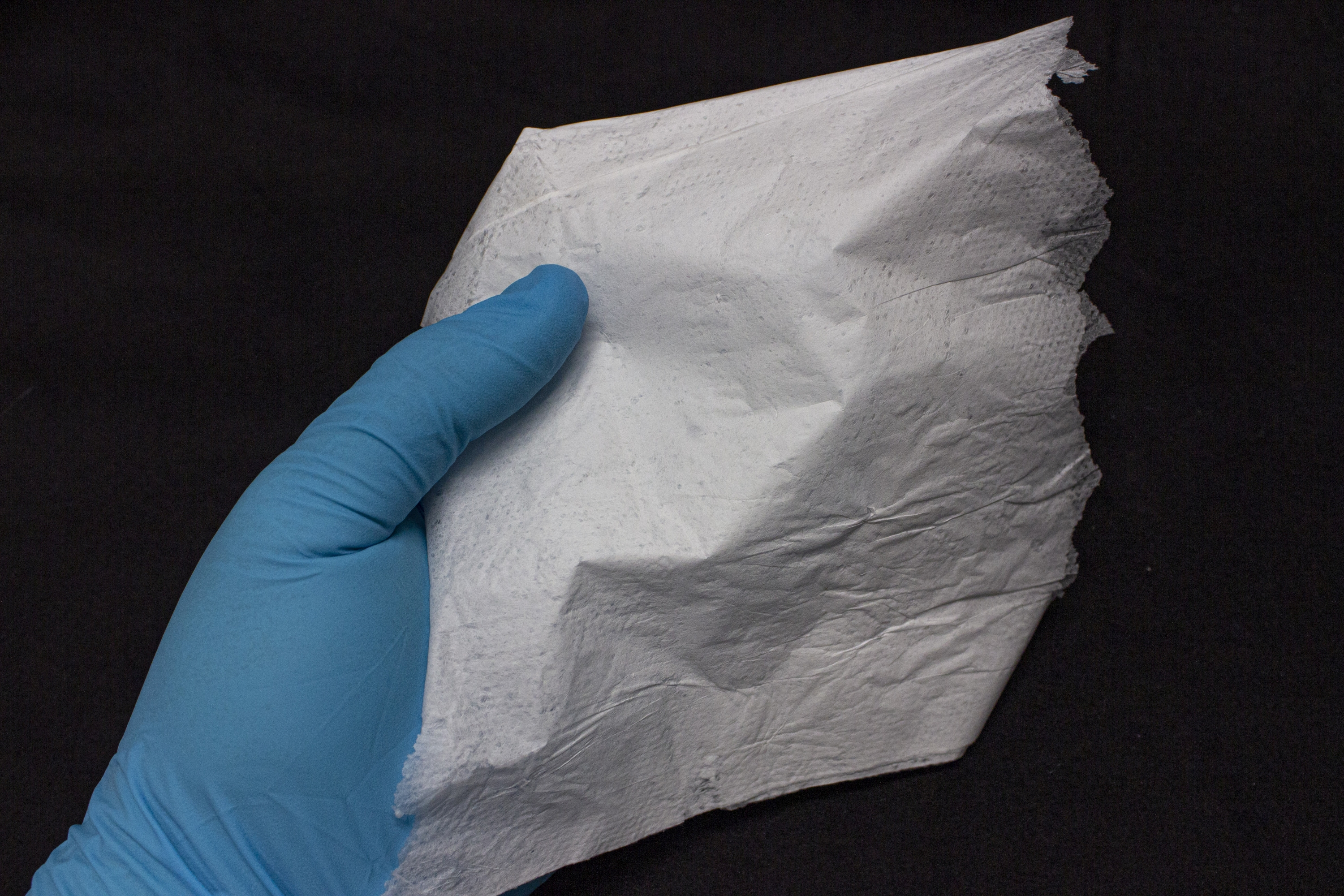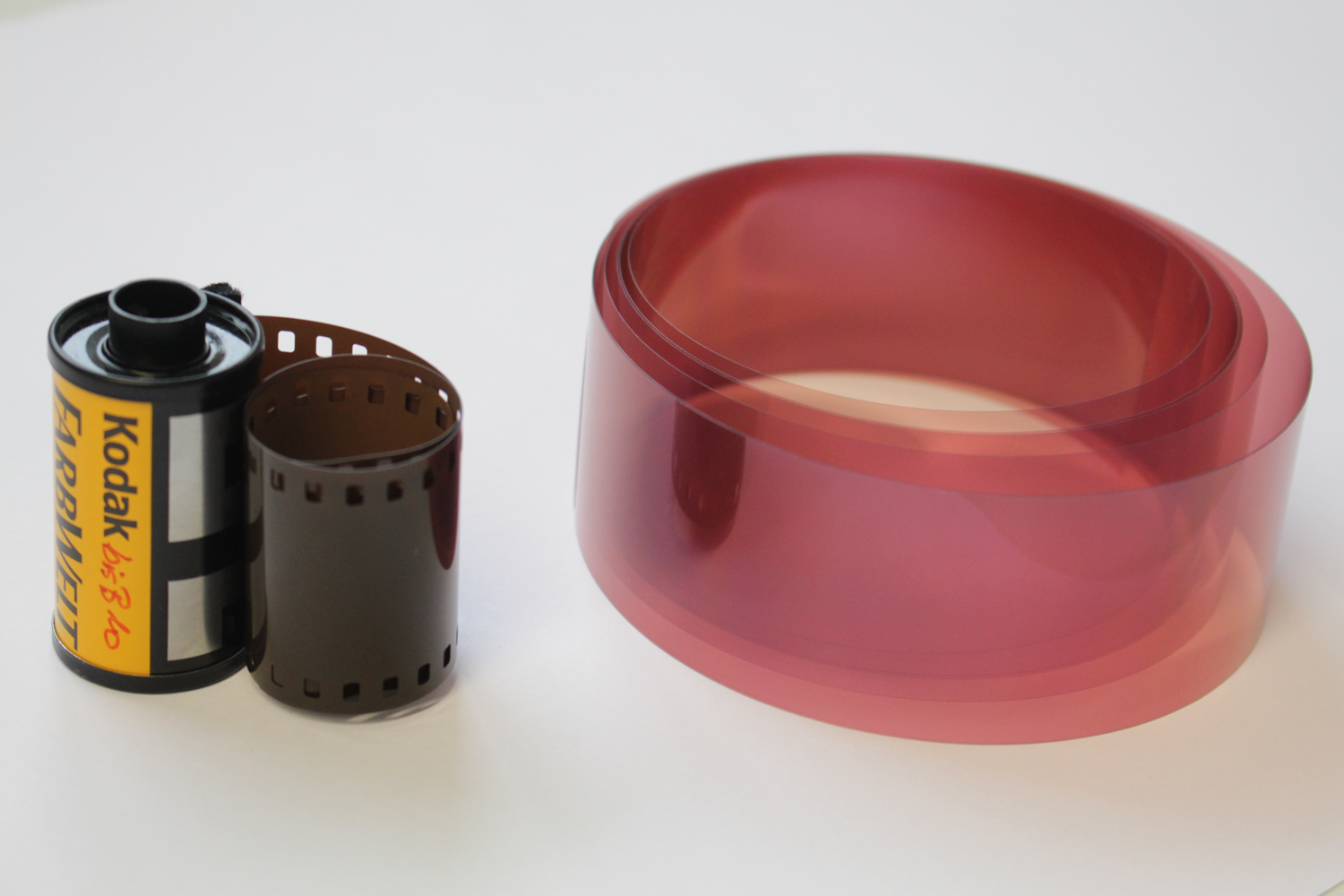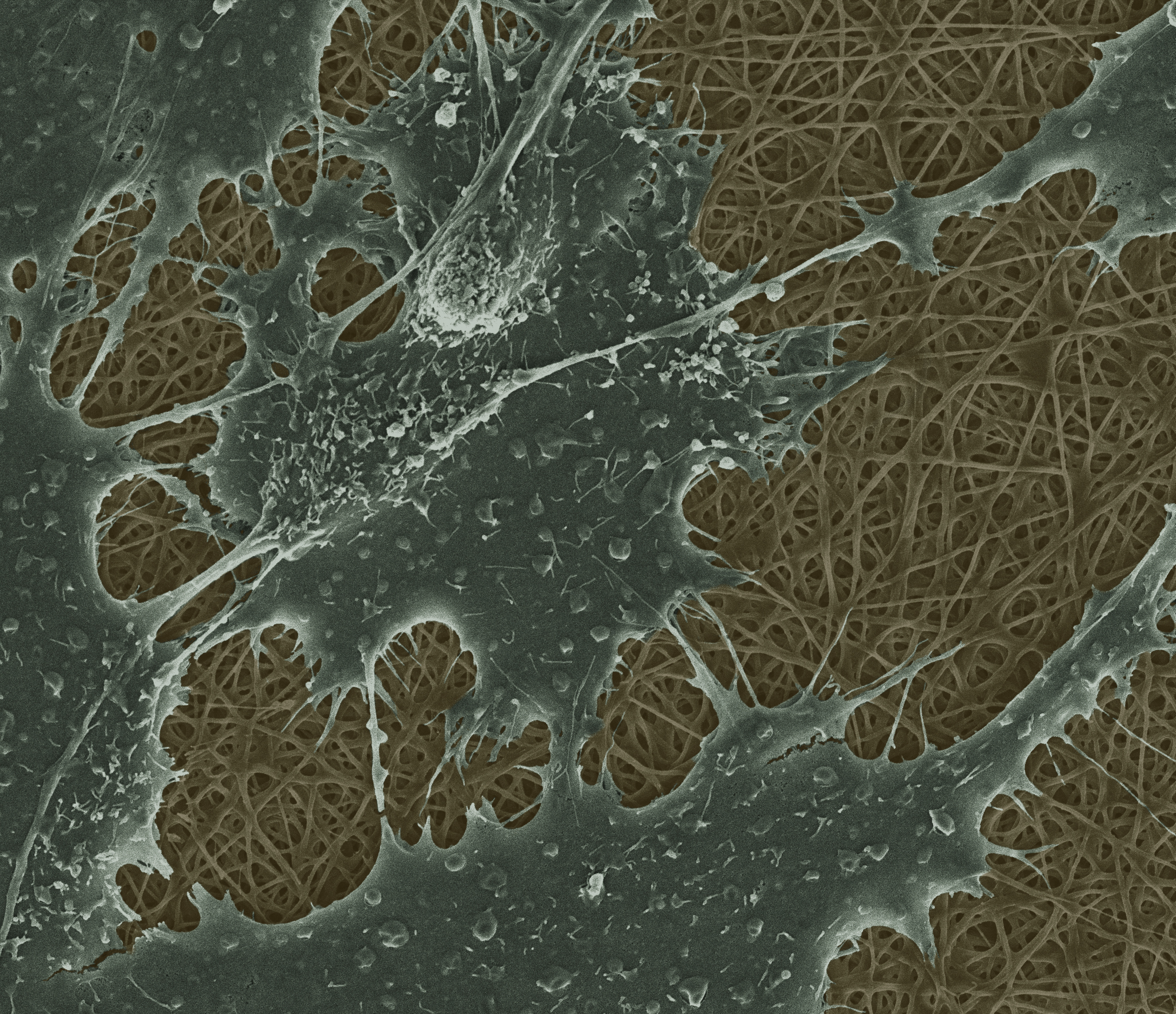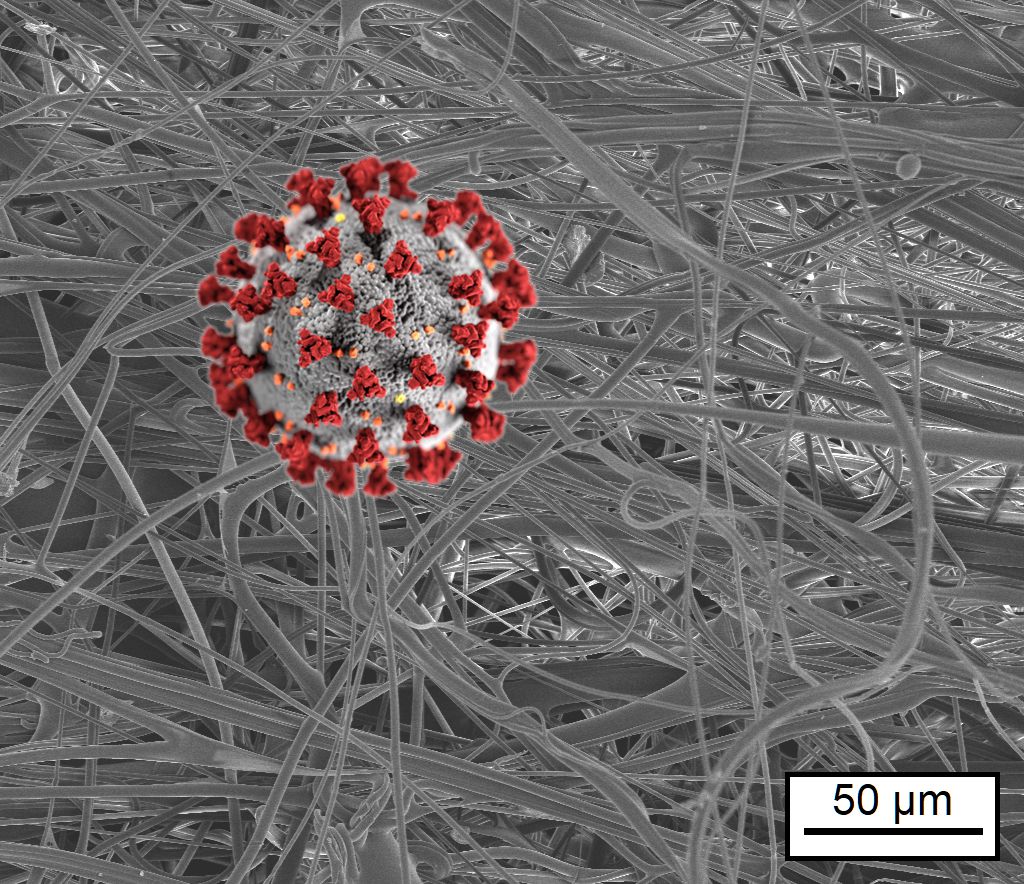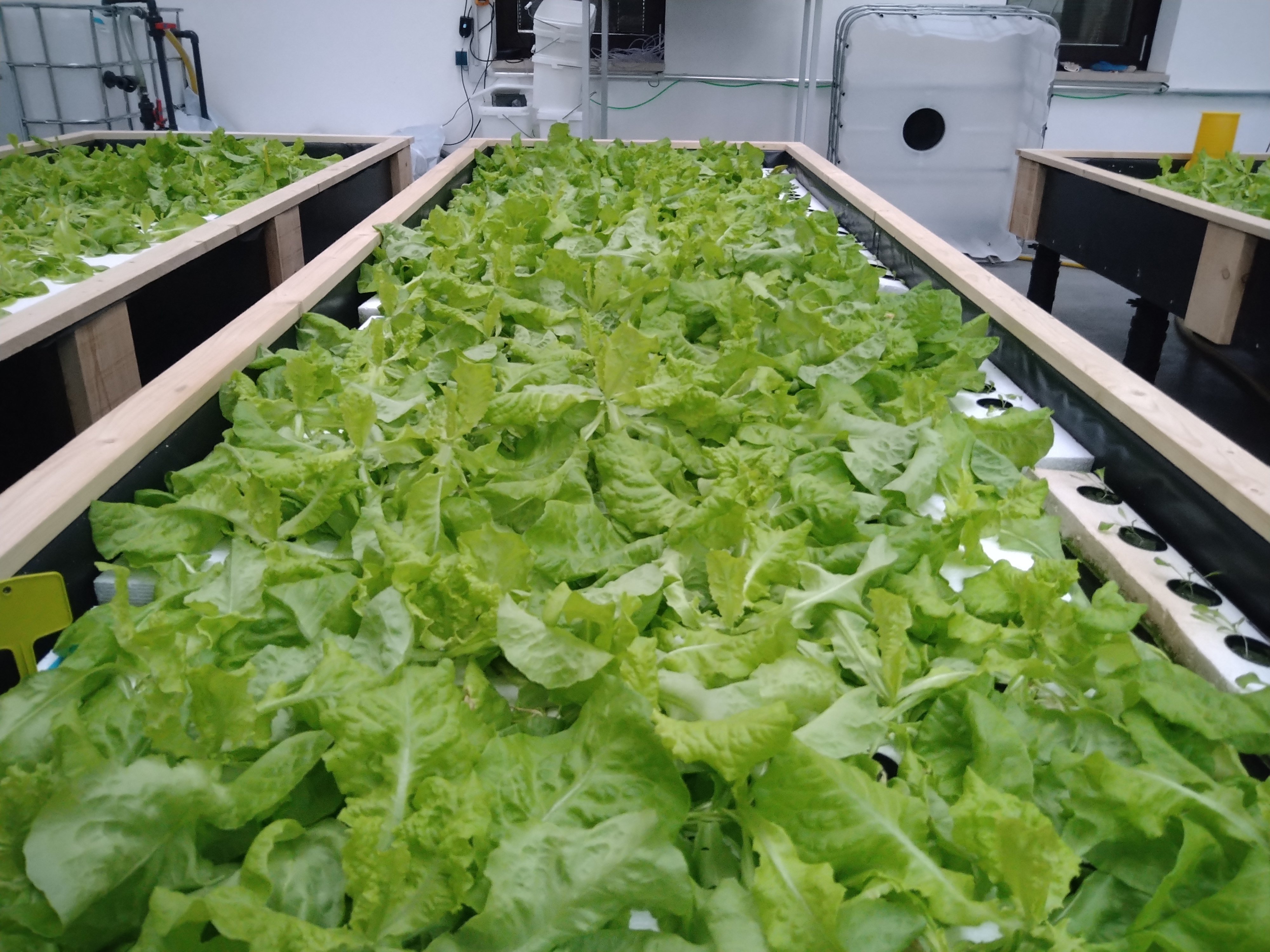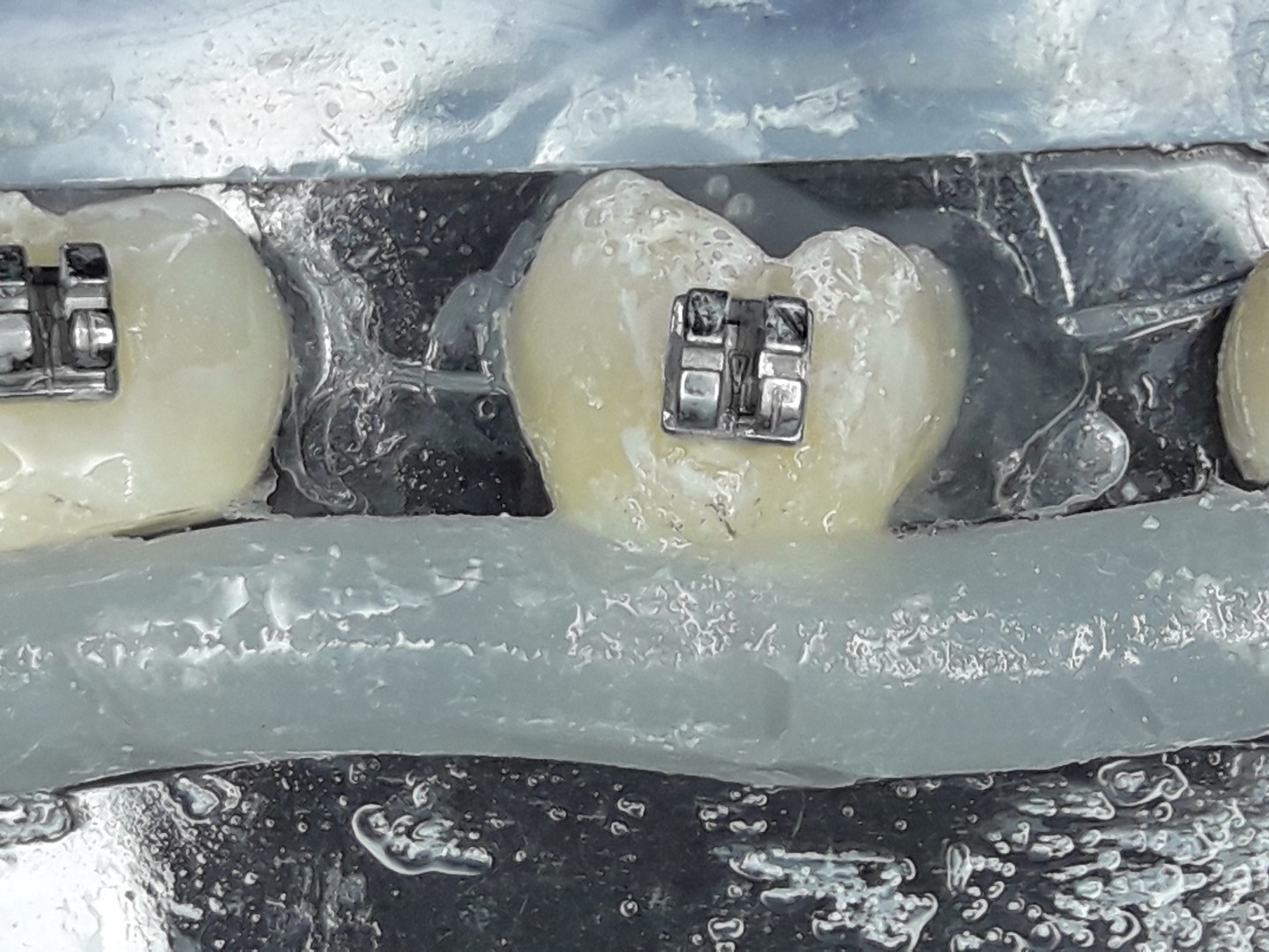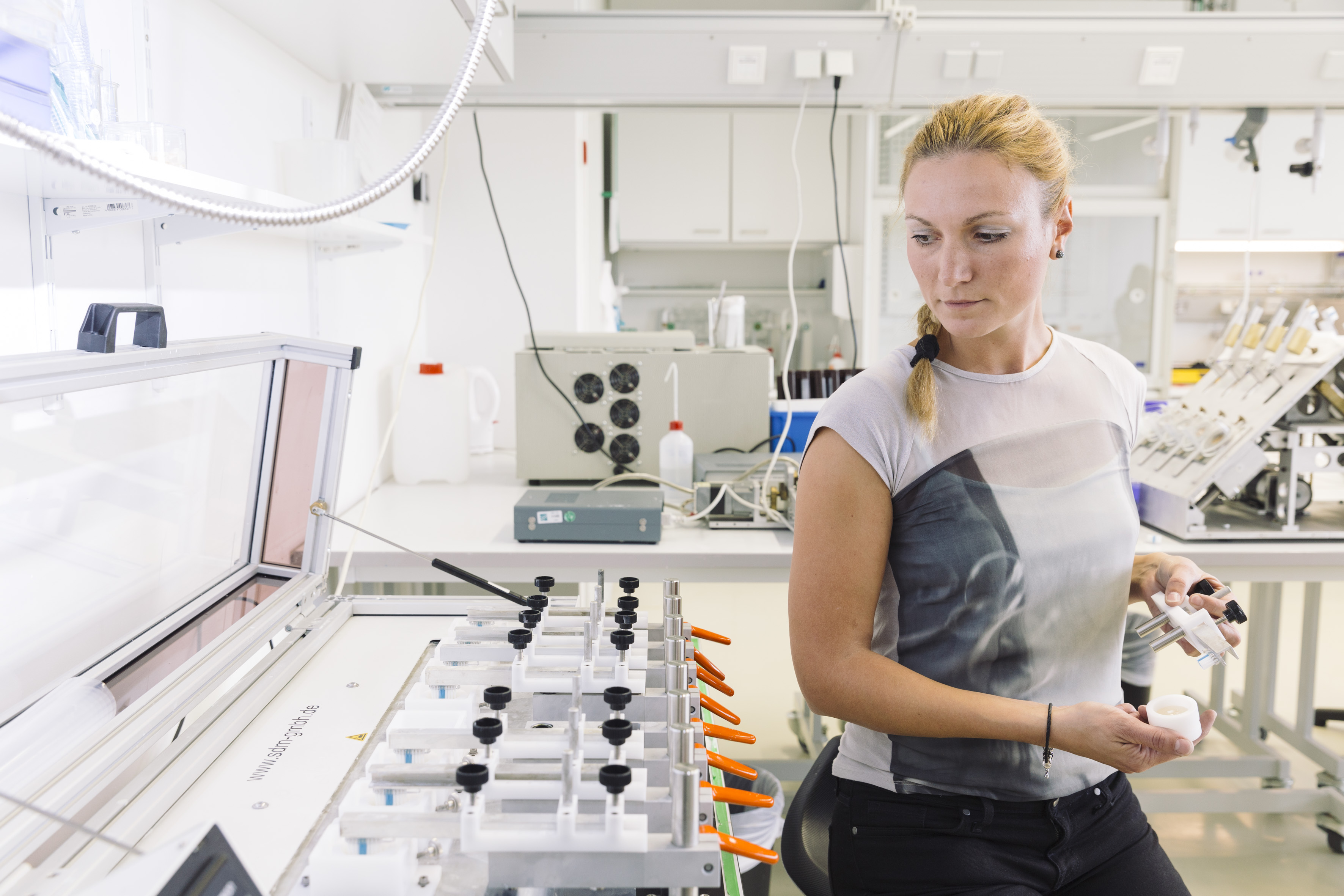
Thanks to our interdisciplinary expertise in materials and life sciences, we are in a position to provide industrial customers with scientific and technical advice on issues in the fields of medicine, care, and the environment and conduct research and development projects. Our focus here lies on materials research for dental and personal care products, the development and characterization of biomaterials for medical devices and the biofunctionalization of surfaces.
We characterize and assess materials and products with regard to their functionality, support the screening of new active substances and design customized models to shed light on modes of action and interactions with biological surfaces. We also develop new materials with improved structure and surface compatibility and customized functionality for medical applications and tissue engineering, and offer methods of modifying surfaces that come into contact with biological materials.
In addition to basic and, above all, application-oriented research in the public sector, we support our industrial partners from research and development and quality control through to claim support and assistance with marketing based on scientific findings.
Our expertise and range of methods include, among other things:
General microstructure and surface analysis
- High-resolution microscopy (SEM, TEM, EDX, AFM, µX-Ray CT, XRM, Nano-XRM, CLSM)
- Surface analysis (XPS, ToF-SIMS)
- Mechanical assessment (hardness determination, DMA, numerical simulation (FEM))
- Chemical analyses (mass spectrometry, FTIR spectroscopy)
Tests specific to oral care and dentistry
- Abrasion measurements (enamel, dentin)
- Dental discoloration
- Analysis of cleaning
- Experimental brush simulation
- Assessment of dentinal tubule occlusion
- Acid stability
- Assessment of de-mineralization and remineralization processes
Skin care and protein-based materials
- Electrospinning
- Development of wound dressing materials (e.g. protein nonwovens, protein sponges)
- Development and assessment of in vitro skin models
- Biomimetic coatings for implant materials
- Molecular structural analysis by means of organic mass spectrometry with a focus on structural proteins
- Assessment of biological interactions between materials
Surface coating and functionalization
- Chemical and physical vapor deposition
- Plasma technologies on a laboratory scale
- Wet-chemical coating processes
- Surface structuring
- Morphological, physical and chemical surface characterization
